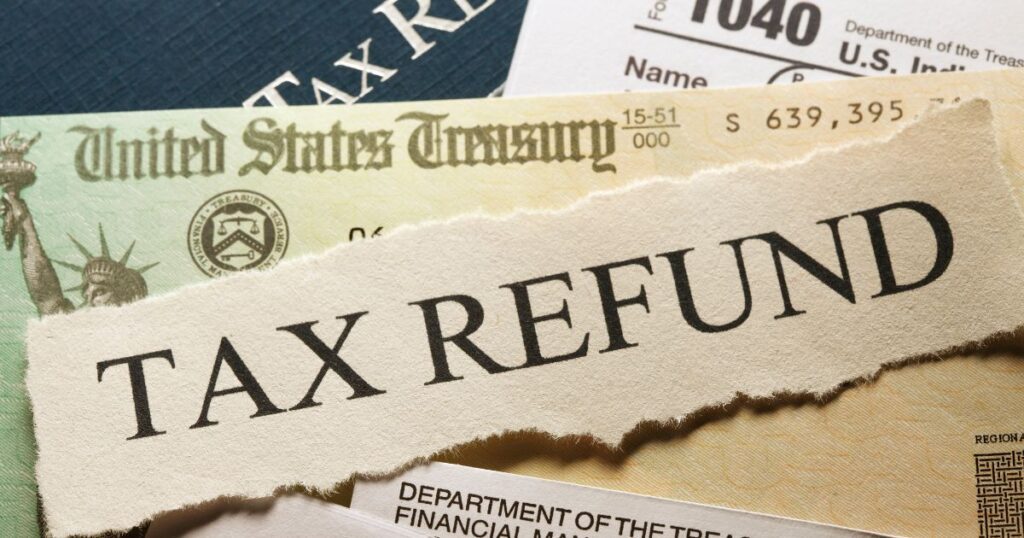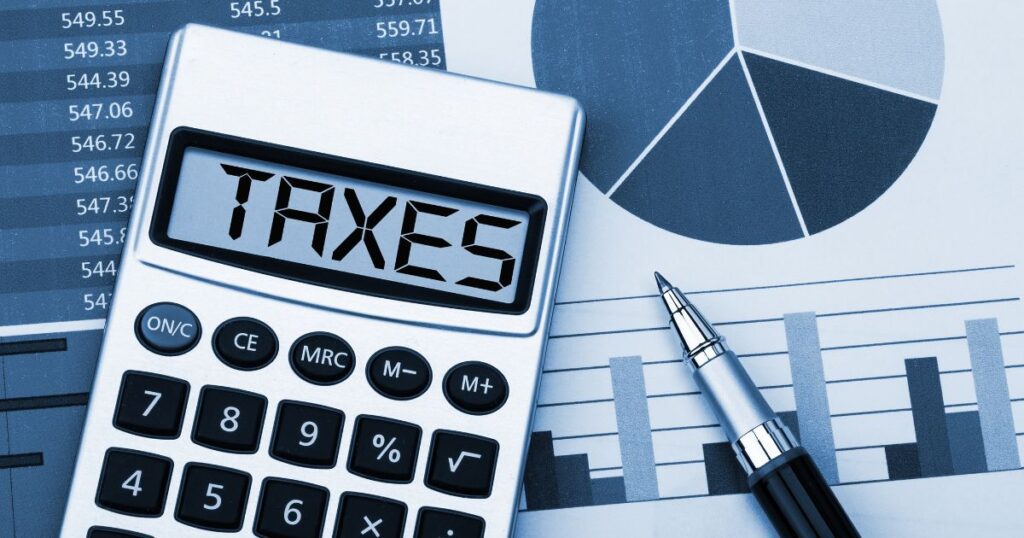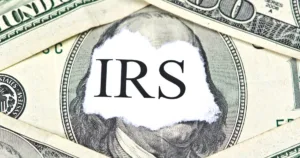Middle-class tax refund in California 2023: Complete Guide

Tax Refund
Table of Contents
The Middle-Class Tax Refund (MCTR) is a one-time tax refund program established by California to relieve middle-class taxpayers affected by the COVID-19 pandemic. The MCTR was announced in early 2021 as part of Governor Gavin Newsom’s proposed state budget and was subsequently signed into law in July 2021.
Under the MCTR program, eligible taxpayers may receive a refund of up to $600, depending on their filing status and income level. To qualify for the MCTR, taxpayers must have a California Adjusted Gross Income (AGI) of $1 to $75,000 for individuals and $1 to $150,000 for joint filers. Taxpayers must also have filed their 2020 California income tax return by October 17, 2022, and not be claimed as a dependent on someone else’s tax return.
The MCTR is intended to provide relief to middle-class taxpayers impacted by the pandemic, such as those who have lost income or incurred additional expenses due to COVID-19. The refund is not taxable income, and eligible taxpayers will receive it by direct deposit or check, depending on how they filed their tax return.
Complete Guidelines about Middle-class tax refund in California 2023
The Middle-Class Tax Refund (MCTR) is a one-time refund for eligible California taxpayers whose income is $1 to $75,000. The refund amount varies based on income, filing status, and the number of dependents. The maximum refund amount is $600 for single filers, $1,200 for joint filers, and $1,000 for the head of household filers.
To be eligible for the MCTR, taxpayers must have filed their 2022 California income tax return by October 15, 2023, and meet other criteria such as having a valid Social Security Number or Individual Taxpayer Identification Number and not owing any state or local taxes, fees, or fines.
The California Franchise Tax Board (FTB) will automatically calculate and issue MCTR refunds to eligible taxpayers starting in December 2023. Taxpayers who do not receive their refund by January 31, 2024, can contact the FTB for assistance.
- The MCTR is a result of a budget surplus in California, and it is designed to provide relief to middle-class taxpayers who may have been affected by the COVID-19 pandemic.
- The refund amount is based on a sliding scale that considers the taxpayer’s adjusted gross income (AGI) and filing status. For example, a single filer with an AGI of $35,000 may be eligible for a $300 refund, while a joint filer with an AGI of $75,000 may be eligible for a $1,200 refund.
- To be eligible for the MCTR, taxpayers must have earned income in California in 2022, filed a California tax return for the 2022 tax year, and meet other requirements such as having a valid Social Security Number or Individual Taxpayer Identification Number.
- Taxpayers who owe any state or local taxes, fees, or fines may have their refund reduced or offset. In addition, the MCTR is not available to taxpayers who are claimed as dependent on someone else’s tax return.
- The FTB will automatically calculate and issue MCTR refunds to eligible taxpayers starting in December 2023. Taxpayers do not need to take any action to receive their refund, but they should make sure to keep their mailing address up to date with the FTB to ensure timely delivery.
- If taxpayers believe they are eligible for the MCTR but did not receive a refund, they can contact the FTB for assistance. The FTB has set up a dedicated phone line and email address for MCTR inquiries, which can be found on their website.
- The MCTR is available to California residents who earned income in California during the 2022 tax year and have a valid Social Security Number or Individual Taxpayer Identification Number.
- The refund is based on a sliding scale that considers the taxpayer’s filing status, AGI, and the number of dependents. Taxpayers who are single with an AGI of $1 to $35,000 are eligible for a refund of $300, while those with an AGI of $35,001 to $75,000 are eligible for a refund of $600. Joint filers with an AGI of $1 to $70,000 are eligible for a refund of $600, while those with an AGI of $70,001 to $150,000 are eligible for a refund of $1,200. Head of household filers with an AGI of $1 to $50,000 are eligible for a refund of $600, while those with an AGI of $50,001 to $112,500 are eligible for a refund of $1,000.
- Taxpayers who owe any state or local taxes, fees, or fines may have their refund reduced or offset. In addition, taxpayers who are claimed as dependent on someone else’s tax return are not eligible for the MCTR.
- To be eligible for the MCTR, taxpayers must file their 2022 California income tax return by October 15, 2023. The FTB will automatically calculate and issue MCTR refunds to eligible taxpayers starting in December 2023. Taxpayers do not need to take any action to receive their refund, but they should make sure to keep their mailing address up to date with the FTB to ensure timely delivery.
- If a taxpayer believes they are eligible for the MCTR but did not receive a refund, they can contact the FTB for assistance. The FTB has set up a dedicated phone line and email address for MCTR inquiries, which can be found on their website.

How to Apply for Middle-class tax refund in California 2023
Taxpayers do not need to apply for California’s Middle-Class Tax Refund (MCTR). The Franchise Tax Board (FTB) will automatically calculate and issue refunds to eligible taxpayers starting in December 2023.
To be eligible for the MCTR, taxpayers must have earned income in California in 2022, file a California income tax return for the 2022 tax year, and meet other requirements such as having a valid Social Security Number or Individual Taxpayer Identification Number.
Taxpayers who are eligible for the MCTR and file their California income tax return by October 15, 2023, will automatically receive their refund. It’s important to keep your mailing address up to date with the FTB to ensure timely delivery.
If a taxpayer believes they are eligible for the MCTR but did not receive a refund, they can contact the FTB for assistance. The FTB has set up a dedicated phone line and email address for MCTR inquiries, which can be found on their website.
Learn About the Best Auto Loan Options in US 2023: Click Here
Is Middle-class tax refund in California taxable?
The Middle-Class Tax Refund (MCTR) in California is not taxable for both state and federal income tax purposes.
- The MCTR is considered a refund of overpaid California income taxes, and as such, it is not taxable for California state income tax purposes.
- For federal income tax purposes, the general rule is that refunds of overpaid state income taxes are not taxable. Therefore, the MCTR should not be included as taxable income on a taxpayer’s federal income tax return.
- However, there is an exception to the general rule. If a taxpayer itemized their deductions on their federal income tax return in a prior year and received a state income tax refund that was included in their federal itemized deductions, they may need to report a portion of the MCTR as income on their federal income tax return. The amount to report as income would be the lesser of the MCTR amount received or the prior year’s state income tax refund included in the federal itemized deductions. This is because the prior year’s state income tax refund reduced the taxpayer’s federal income tax liability. The portion of the MCTR attributable to that refund is considered a recovery of a prior year deduction and must be included in income.
- Taxpayers unsure whether they need to include any portion of the MCTR as income on their federal income tax return should consult with a tax professional or the Internal Revenue Service (IRS).
What is a Refund card?
A refund card, or a prepaid debit card, is a payment card loaded with funds by a government agency, bank, or other organization. Refund cards are often used to distribute refunds, rebates, or payments to individuals who owed money.
Prepaid debit cards are similar to traditional debit cards in that they can be used to make purchases or withdraw cash from ATMs. However, prepaid debit cards are not linked to a checking account or credit line like a traditional debit card. Instead, the card is loaded with a certain amount of funds, and the cardholder can spend up to that amount.
When a refund is issued on a prepaid debit card, the funds are loaded onto the card, which can then be used like a regular debit card to make purchases or withdraw cash from an ATM. Some refund cards may have specific limitations or fees, such as transaction or ATM withdrawal fees. It’s essential to read the terms and conditions carefully to understand any costs or rules associated with the card.
In the context of the Middle-Class Tax Refund (MCTR) in California, the Franchise Tax Board (FTB) has not yet announced how it will distribute refunds to eligible taxpayers. Some taxpayers may receive their MCTR refund on a prepaid debit card, but the FTB has not yet provided any specific information on this topic. Taxpayers should keep their mailing address up to date with the FTB to ensure timely delivery of any refund, whether it is on a prepaid debit card or another form of payment.
Essential Websites for Middle-class tax refund in California
Here are some indispensable website URLs and contact information for the Franchise Tax Board (FTB) in California:
- FTB Homepage: https://www.ftb.ca.gov/
This is the leading website for the FTB, where you can find information about tax forms, publications, instructions, tools, and resources for taxpayers and tax professionals.
- Middle-Class Tax Refund (MCTR) Page: https://www.ftb.ca.gov/about-ftb/newsroom/middle-class-tax-refund/index.html
This page is dedicated explicitly to the MCTR, where you can find information about eligibility, the application process, and more.
- FTB Contact Page: https://www.ftb.ca.gov/about-ftb/contact-ftb/index.html
This page has information on how to contact the FTB by phone, mail, or online. You can also find information about office locations and hours of operation.
- FTB Online Services Page: https://www.ftb.ca.gov/online/index.html
This page has information about online services offered by the FTB, including filing and payment options, account management tools, and more.
If you need further assistance or have specific questions about your tax situation, it’s recommended to contact the FTB directly. The FTB’s general phone number is 800-852-5711 (within the U.S.), and their hours of operation are Monday through Friday, 8:00 a.m. to 5:00 p.m. Pacific Time.







1 thought on “Middle-class tax refund in California 2023: Complete Guide”